Common Cognitive Biases in Competitive Pokémon
In competitive Pokémon, as well as in many other competitive games, a player must make a series of judgments in order to create situations that benefit the player, with the ultimate goal of winning a game. In the interest of time, a player must decide what they can afford to assume in order to free up time for more important choices. These assumptions are examples of cognitive biases.
A cognitive bias, put simply, is a mental shortcut in which a person makes a judgment on something happening and quickly comes to a conclusion, despite not considering the logic of how that conclusion was reached. This isn’t always a bad thing; in fact, even in Pokémon, quickly jumping to a conclusion based on limited information to save time is often preferred. When you have 45 seconds to make a move in your match against your opponent who has a Garchomp on their side of the field, you’d more often that not be correct in assuming that the Garchomp is max Speed with a Jolly nature and using a moveset along the lines of Protect, Earthquake, Rock Slide, and Dragon Claw. If you spend time considering every possibility of moveset, Nature, and Speed on that Garchomp, you’re wasting valuable time in which you could be considering more important information (i.e. its item, which move Garchomp is likely to execute this turn, etc), especially when assuming that the Garchomp will be somewhat standard allows you to make a play that’s “good enough”, even if it’s not optimal.
However, there are quite a few cognitive biases that many players experience while playing that actually hurt their chances of winning or getting better at the game. I could go on for several thousand words about each and every cognitive bias that a player might experience or run into, but instead, I will talk about three common biases in particular: The Dunning-Kruger Effect, confirmation bias, and the Gambler’s Fallacy.
The Dunning-Kruger Effect
I’m sure you’ve noticed this in various aspects of life: someone who has no idea what they’re talking about acting as though they’re an expert on a topic. This behavior has a name in academia: the Dunning-Kruger Effect. This effect, first postulated by Drs. David Dunning and Justin Kruger of Cornell University in 1999, basically states that a person who is incompetent at a certain thing will often greatly overestimate how good they are at that thing. An incompetent person will also have no idea how just how incompetent they are at a subject, and often can’t identify other people who are skilled at that subject because they lack the proper reference for how skilled that person really is. In addition, Dunning and Kruger found that people who were really incompetent would have a bigger gap in their perceived competence than people who were only slightly incompetent. Interestingly, they also found that a person who is really good at a certain thing will often underestimate how competent they actually are at it.
The Dunning-Kruger Effect can affect a player’s growth in skill level at Pokémon (and at any other game or activity). A lower- or mid-level player may perceive themselves to be much better than they actually are and come to the conclusion that what they’re doing is optimal, correct, or otherwise infallible. Whether this is a team building issue or a playstyle issue, a player who thinks that they have no room for improvement is often right, not because they’ve reached a skill cap but because they’ve unwittingly imposed a roadblock in their own way. No one will become a better player if they don’t think they can improve any further.
On the flip side, a high-level player might find themselves a terrible teacher, should they decide to help out a lower-level player. Team building and battling have become second nature to this player, and as such they perceive those two concepts to be easier to grasp than they actually are. As a result, there can be some frustration on the part of both the teacher and the student, as the teacher wonders why the student can’t grasp (to the teacher) an almost self-evident concept, and in turn the student gets annoyed with a teacher who seems to be going too fast.
There are several ways to combat the Dunning-Kruger Effect when playing Pokémon. The first step is to consider what level of player you truly are, and one way to do this is to battle a wide variety of people. Research has shown that people that are less competent at a subject are more likely to rate themselves in line with reality if they’re exposed to people that are very competent at that same subject. Battling and sharing team ideas with more experienced players is a good way to gauge how good you really are as a player. Pokémon is a game of probability, and a less skilled player may defeat a more skilled player from time to time. However, the probability that this will happen consistently is quite low, so keeping track of wins and losses when battling other players over and over again may be an objective means of determining how good you really are.
One bit of good news is that Dunning and Kruger found that with proper training in a skill, a person will likely recognize and acknowledge their previous level of incompetence. Once a player elevates their skill to a point where they can look back and see how bad they used to be, that player can keep that recognition in mind when appraising their current skill level, knowing that with even more improvement, they’ll look back at their intermediate skill level in the future the same way that they look back at their lower-skilled past in the present.
Confirmation Bias
One of the most important aspects of teambuilding in VGC is the testing stage, where once the team is actually made a player tries playing a number of games with it to see whether or not the team is effective. It’s at this stage that players can be influenced by another cognitive bias. Confirmation bias occurs when a person interprets, remembers, or searches for information in a way that agrees with or confirms their already held beliefs or hypotheses. This bias is often stronger when dealing with emotionally charged issues or deeply held beliefs.
Confirmation bias often manifests itself in competitive Pokémon in the teambuilding phase, specifically the testing phase. If a player were to come up with the hypothesis that Eviolite Magneton would be a good way to clear out the Steel types that threaten their team, they might unconsciously only take notice of the times when that strategy actually worked, even if on average the strategy is more likely to fail than to succeed. The emotional aspect of this can present itself when a player decides to use one of their “bros”, a Pokémon that for whatever reason provokes an emotional response in that player. Perhaps that Pokémon was instrumental in an in-game run, or perhaps the player had won a previous competition with that Pokémon. This emotional attachment will likely be detrimental to that player’s chances for success, however, as it will make the player even less likely to pay attention to the failures that Pokémon encounters.
The best way to limit the effect of confirmation bias is to make sure you are being objective whenever possible. If you are testing a single Pokémon on a team, you could try recording whether or not you won when it was brought, how many Pokémon that Pokémon KOed, or some other more objective measure than “I felt like it did a lot of work.” When you are finished testing, you’ll be able to look at your notes and determine whether or not that Pokémon was actually effective with the hard data that you collected.
The Gambler’s Fallacy
Competitive Pokémon is a game that involves a fair element of chance. In addition to executing their game plan, a competitive Pokémon player must also take into consideration the probabilities of certain events that can affect whether or not the player or their opponent will be able to execute that game plan. For instance, a player may elect to use a move such as Rock Slide instead of a more powerful move, as the 30% chance of flinch making their opponent’s useless for that turn may lead to a win condition being fulfilled. What gets players into trouble, however, is thinking that the RNG “owes” them a flinch. This is the heart of the Gambler’s Fallacy, which is the belief that if an event with a set probability happens (or doesn’t happen), then it will be less (or more) likely to happen in the future. Scald’s 30% Burn rate means that on average, you’ll burn the opponent three times every ten times you use the move. This does not mean, however, that after Scald number eight you’ll burn the opponent on the next two Scalds if you’ve gotten only one Burn so far. Each time you use Scald, you still have a 30% chance of burning the opponent, regardless of how many times you’ve used it before.
This fallacy is most commonly seen while actually battling. A player may decide to choose a less than optimal move due to the fact that it has a chance of triggering a beneficial effect and because the player feels “due” to trigger that effect. A player may also feel that the game is treating them “unfairly” if an event happens for them less than the event’s probability suggests (or if an opponent gets an event to happen more often than its probability suggests). Perhaps a player’s Togekiss does not manage to flinch the opponent at all with Air Slash after using it four times in a match. A player’s frustration may build with each “failed” flinch, and while the probability of not getting a flinch in four attempts is a measly 2.56%, the possibility is not outside the realm of probability. The chance of getting an Air Slash flinch with Togekiss, after adjusting for Serene Grace and the move’s accuracy, is 57% no matter how many times it is used. Likewise, an opponent’s Entei burning one of a player’s Pokémon with Sacred Fire does not mean that Entei is less likely to burn the other Pokémon if it successfully uses Sacred Fire on the other Pokémon. The chance of triggering a Burn is 50%, regardless of whether or not the secondary effect triggered in previous turns and even though on average there is only a 25% chance of two consecutive Burns occurring. The frustration that builds from such events may cause a player to go on tilt, and this can be accelerated if the player feels that things are unjustly not going the way they are supposed to.
It is important to remember that each time that you use a move, you have exactly the same chance of proccing a secondary effect as every other time you use that move. Rock Slide will always have a 30% flinch chance (before factoring in accuracy). Likewise, secondary effects that affect the ability of your Pokémon to act in a turn will always have the same base chance of triggering. Your Swaggered Rotom will always have a 50% chance of acting in a turn, so long as it is still confused. A paralyzed Mega Salamence will still only act 75% of the time, even if it’s been fully paralyzed the turn before. It is important to remember that this chance is static, and that the RNG will never “owe” you anything. One way to help deal with this fallacy is to ignore previous turns when considering a move choice. If you treat every move with a secondary effect as though it’s the first time you’re using it, or every turn where you’re affected by Paralysis or Confusion as the first turn you’re experiencing the status, you will be less likely to make plays in such a way that count on an erroneous grasp of probability.
Conclusion
Cognitive biases can be powerful forces in determining how a player plays the game of competitive Pokémon. As long as a player keeps these biases in mind, that player can help minimize the effect that these biases have on their play. This will arguably make them a stronger player in the long run. While the above are not the only cognitive biases that affect players, I believe that being cognizant of these three biases in particular will allow players to more easily achieve greater results while playing competitively.
28 Responses to Common Cognitive Biases in Competitive Pokémon
Leave a Reply
You must be logged in to post a comment.

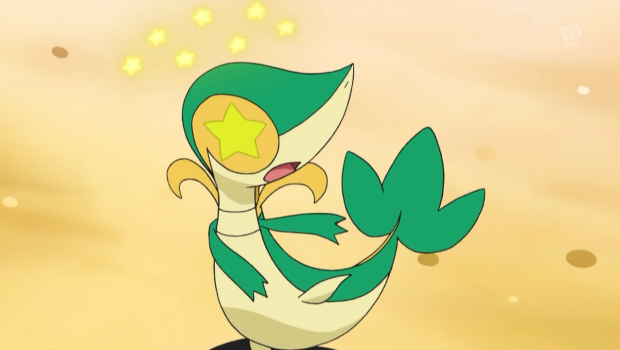
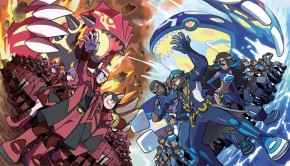
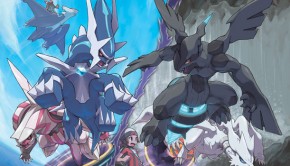

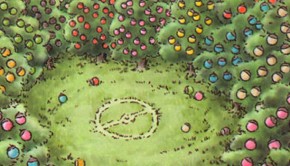
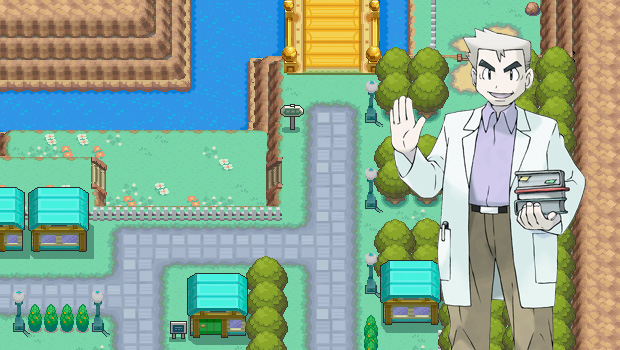




Only a quick glance, but it is a good read. Thanks for bringing this one out.
Fascinating. Read it cover to cover, probably one of the best posts I’ve seen on this site.
Amazing stuff Werford, it’s essential to make players familiar with those usually subconscious aspects of Pokémon.
Great article, a lot of this really can help me, and shows what I can learn to manage with biases
I wasn’t quite sure there was an actual name for “Confirmation Bias,” but can attest to how often I have felt it when teambuilding. Using garchomp in 2013 was not a good idea (because Landorus-T), considering how well it did in 2012, but since he was one of my “bros,” I couldn’t help but just look at situations in which it won and not failed. That bit me in the back later, but now it’s definitely to every player’s advantage to really step back and look at their team objectively. Replace X with Y and tweak Z to counter situation A and B.
Definitely a great read.
1st article of the year and it’s greatness!
This might be my favorite article on site so far, I’d love to see more articles like this one.
Best article of 2015 so far.
Really though, this is great. Even though I already knew what all of these were, I still fall prey to them from time to time, so it’s good to have a reminder.
I love articles like these, they give me things to think about even after I’ve closed my browser. Thanks for writing!
Thanks you for the very thought-provoking article Werford, and this definitely should be a must-read for anyone to really have a solid grounding in the game. Articles that delve into the mental aspect of the game are probably among the best because at the end of the day, the person pushing all the buttons is the player, and their mental processes can dictate how a match can be won or lost, and shows its not simply just during the match, but well before it as well. Thanks once again Werford for writing this article.
Great article, I loved reading it, but at the same time, am disappointed , as it confirms my suspicion that in team building I have fallen into “Confirmation Bias” *Sigh* Back to the drawing board……
Very well researched and overall a great read. This has some fascinating insights, thanks!
didn’t there was actually a word for it O_O Great article! i really learned something 😀
didn’t know*
Ah, gotta love quality content like this :] Kinda wish I knew more about this back when I was taking a Cognitive Psychology course haha
Probably my favourite article on the site so far, an excellent read on a relevant topic written to a very high standard by someone who is clearly intimately familiar with the subject matter.
Really useful article man =) – proves that ive still got a lot of learning to do to get out of certain mindsets (my love for mega beedrill spings to mind) when team building and playing.
thanks so much for this, i read every word and it helped me a lot as a player. One of my favorite articles on the site.
Ah yes, “The Dunning-Kruger Effect” !!
While it does not surprise me to see this in action at a Premier Challenge or a Regional Championship…it is quite disturbing coming across it at a National Championship.
Now I am all for trainers being confident in themselves, it puts a smile on my face to see a trainer declare they are the very best at VGC events, but it really bothers me when I hear someone safely spout a fountain of fictional information.
I use the word “fictional” because these people have no plans to work towards their words becoming “truth”.
It always worries me when I hear “I would have won this VGC, if I was not matched up with (insert random trainer name)”.
While confidence can be difficult to gather for some…if you can not muster up enough to convince yourself that you can beat any trainer at your event…as this article mentions, you have imposed a roadblock that will continue to stop you from succeeding at Pokémon and life.
Went to my first live VGC tournament yesturday. All of the topics the article covered helped scrap me break even with wins/loses. Don’t underestimate the information in this article, but if you can catch your opponent falling into these traps it can help make the game a little bit easier.
amazing
Great read!
This is a really great article, it definitely made me think about how I play and I’ve gotta say, I have definitely fallen for the gambler’s fallacy many times.
I find the Dunning-Kruger effect applies to most activities in life, not just competitive pokemon/gaming.
The Gamblers Fallacy actually helps keping my mind sane with SRing for 5 IV pokemon aswell. You’ll probably recongize it. When having a 4 ivs shiny with 1 iv at 30. You’ll probably think bidoof, I was so close! Yet the chance of that imperfection is as high as every other possible iv spread. This makes it less harsh somehow when you got a nearly perfect pokemon.
Another thing, is I had lots of bad luck with breeding shinies with masuda method and shiny charm awhile ago. it took me about 5 times longer then it should. I unaware labeled myself as someone with extremly bad luck. Making me unawarely think like “oh, those eggs took so long, so i’t’ll probablly take forever again this time!”. Yet luck is non existent. So now I realize that, SRing is becoming less harsh on me.
I don’t know if people have the same feeling. But i’m gonna keep going for my 5 IV landorus, with a clear mind.
We need more articles like this one, it’s just, perfect 🙂
Great post, I naturally knew that I had some biases playing before reading, but now I’ve got a name to put to the face!
Great idea to apply cognitive biases to Pokemon, I’d never considered it. It would be great if you could write down some more, even if its just a brief account of each because I think this is really important to becoming a better player.